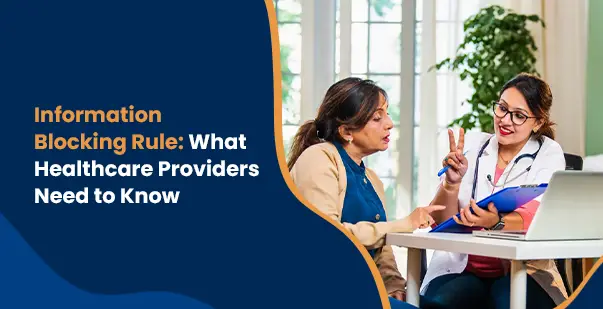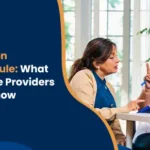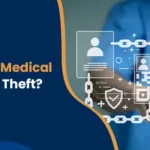What Is Information Blocking? Practical Guidance for Healthcare Professionals

November 26, 2025
Did you know that 42% of hospitals have noticed information blocking behaviors since the passage of the 21st Century Cures Act? If you work in healthcare, you may have seen it, too.
In this article, we’ll break down what information blocking means, why it matters, and outline some real-world strategies to help healthcare providers stay on the right side of the law.
A lot of healthcare professionals still aren’t quite sure what actually counts as information blocking in their daily work. Let’s clear up the confusion.
What Is Information Blocking and Why Is It Important?
Information blocking has been in the spotlight ever since the 21st Century Cures Act came into play. But what is information blocking, really?
It’s any action – big or small – that makes it tough for patients to get their own electronic health information when they need it. Sometimes, these barriers are built into daily routines or software setups without anyone realizing it.
A 2023 study found almost 42% of hospitals noticed practices they identified as information blocking. Often, these issues come straight from clinical teams and staff, even if it’s not on purpose.
Challenges for Healthcare Providers
Current regulations try to stamp out these barriers, but change isn’t easy. Many health systems wrestle with updating their workflows and tech to keep up with the rules, which can complicate getting information to patients and fellow providers.
One good move? Take a minute to walk your team through real-life scenarios where info could get held up – that “aha!” moment can seriously boost your team’s awareness of what is information blocking, even when they think they’re just following routine steps.
How Do Information Blocking Rules Line Up with HIPAA?
Understanding the actual information blocking definition makes life easier for every healthcare provider. Under current federal rules – guided by the Office of the National Coordinator for Health Information Technology (ONC) – information blocking is any action by an entity that likely prevents the access, sharing, or use of electronic health information, unless it’s legally required or falls under a clear exception.
It’s not just about outright refusing to share records. It could also mean taking too long to respond, charging too much for copies, or setting up confusing systems that hinder access.
How to Check for Risk
Healthcare teams and IT professionals should regularly look over their existing rules and day-to-day processes. This helps make sure information gets to patients and other clinicians quickly and without unnecessary barriers.
Here’s a smart habit: schedule quarterly team meetings where you run through a few ‘mock requests’ from patients or outside providers. This dry run can quickly reveal if your current system might be slowing things down or putting up roadblocks you hadn’t noticed.
Spotting Information Blocking in Everyday Healthcare
There’s still confusion over the relationship between HIPAA information blocking rules and traditional privacy laws. Some providers think HIPAA makes all data sharing risky, but the truth is – HIPAA actually supports and sometimes requires information sharing for treatment, payments, and healthcare operations.
The 21st Century Cures Act and HIPAA both champion the patient’s right to see their own medical records. Their main goal is to promote fast and secure data flow throughout healthcare.
Avoiding Honest Mistakes
Misinformation or misunderstandings about HIPAA rules can lead to accidental information blocking in healthcare. Training your care team on both HIPAA and Cures Act guidance goes a long way toward preventing these missteps – and helps everyone work together on patient-centered care.
A helpful trick is to keep a cheat sheet handy at work that covers key differences between HIPAA and information blocking rules. Having this quick reference nearby can clear up the fog if issues come up mid-shift, so you always know where you stand.
Practical Steps for Providers to Meet Information Blocking Requirements
Patient involvement is at the heart of the most recent information blocking rules. According to the JAMA Health Forum, there wasn’t a big jump in patient complaints after these rules went live. Most patients actually appreciated the added access to their health data.
Turning Transparency Into Opportunity
More open communication can strengthen trust. Providers can help by prepping patients before sharing results – explain what’s in a report or when extra questions might come up. These simple conversations keep patients from guessing (or panicking) about unfamiliar details, and make their health information much clearer.
A few easy-to-apply strategies include:
- Giving patients plain-language guides to lab or test results
- Letting patients know who they can contact with questions
- Checking in after new results appear in the patient portal
Bonus idea: Try testing your patient communication tools – ask a few patients to walk through how they access their results and where they get stuck. Their feedback will help you fix confusing steps you might not spot from inside the system.
| Practical Step | How It Helps Patients |
| Provide plain-language guides to lab or test results | Makes health info easier to understand and reduces confusion |
| Let patients know who to contact with questions | Gives patients a clear point of contact for concerns or clarification |
| Check in after new results show up in the patient portal | Supports patients when they see new info and addresses questions right away |
Building a Culture of Transparent Data Sharing in Healthcare
Healthcare teams have a big part to play in breaking down barriers. The key? Foster open, honest information-sharing from the front desk to the back office. Your electronic health record system should be easy enough for everyone to use – patients included.
Keep the conversation going. Remind patients they have the right to see their own records, and invite them to play an active role in their care. Up-to-date training each year ensures staff get what’s allowed (and what’s not) under information blocking rules.
Tips for Teams
- Hold yearly training sessions on HIPAA, Cures Act, and regulatory updates
- Adjust workflows for easier, faster sharing with both patients and partner providers
- Encourage a patient-centered mindset among all staff
This approach not only keeps you in compliance, but also leads to stronger relationships and better care results.
Pro tip: Start a monthly peer huddle where frontline staff can share the obstacles they’re hitting or the workarounds they see. Sometimes your best ideas for removing information barriers come straight from the people doing the hands-on work every day.
Conclusion
Healthcare professionals are central to eliminating old habits that keep patients from their health data. With almost half of hospitals still experiencing information blocking, staying informed and adjusting your workflows matters more than ever. By understanding what is – and isn’t – information blocking, and how it lines up with HIPAA, you’ll be protecting patients while empowering your team.
As information-sharing regulations evolve, now is the time to review your systems, make sure staff get proper training, and create workflows focused on transparency. The future of healthcare belongs to open, safe, and patient-first communication.
FAQs
Q: What is information blocking in healthcare?
A: Information blocking in healthcare means practices that limit access, sharing, or use of electronic health information. This breaks the intent of rules set by the 21st Century Cures Act to help patients and providers share data freely.
Q: How common is information blocking in US hospitals?
A: Recent surveys show about 42% of US hospitals reported seeing behaviors they believe are information blocking. Healthcare providers now most often get perceived as practicing information blocking, more than health IT developers.
Q: Did the Information Blocking Rule raise patient complaint rates?
A: No, research shows there was no significant increase in patient complaints after the Information Blocking Rule took effect. Many patients used the portal, but there was no spike in concerns following quicker access to results.
Q: How does HIPAA information blocking differ from information sharing rules?
A: HIPAA aims to protect patient privacy, while the Information Blocking Rule encourages safe sharing of health information. Providers must strike a balance – protecting privacy, but not blocking information unnecessarily.





